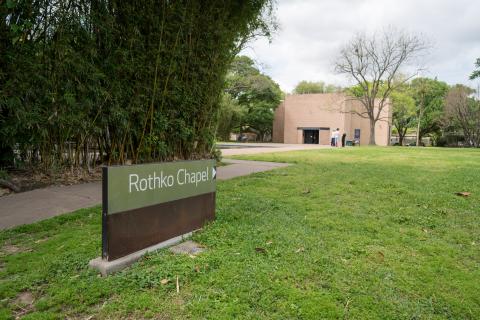The following post is written by Caitlin Ferrell, Visitor Services Coordinator at the Rothko Chapel, which is a Cooperation Circle member of the United Religions Initiative. Caitlin participated in a January 2019 trip to the United Nations led by URI North America. Click here to read reflections from her fellow participants.
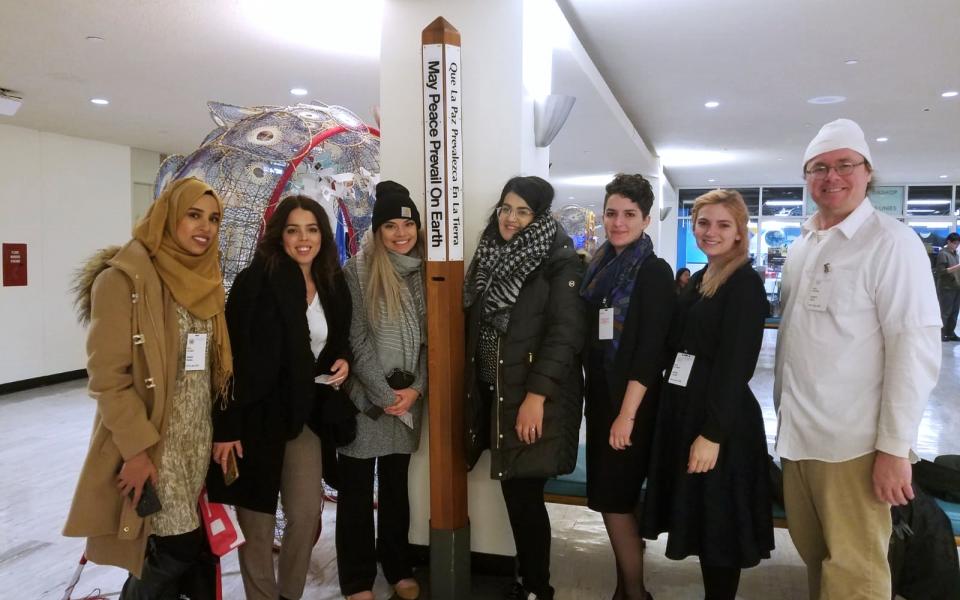
Young leaders from across the United States visited the United Nations in January 2019.
One week ago as the sun rose, I was leaving Houston, traveling to New York City to visit the United Nations. I was a heady mix of excitement and anxious energy, ready to see new places, meet new people, and experience new, life-changing ideas. As the plane made its way across much of the USA towards New York, I read the pre-reading on the prevention of genocide by religious organizations, jumping right into the deep end of important global topics! Letting the magnanimity of this material and these ideas wash over me, I have to admit, I felt a bit nervous.
To give a little background, I am the Visitor Services Coordinator at the Rothko Chapel, an interfaith sacred art space, dedicated to the intersection of arts, spirituality, and human rights. It is a space open to every person for free, every day, to come and experience the incredible artwork of Mark Rothko, to engage their own religion in their own way, and to spend a quiet moment away from the distraction and busyness of the outside world. I spend my days making sure that this space dedicated to mutual respect, understanding, and community is open and available, that our public programs educate our community on the world’s religious traditions and prominent human rights issues, and that we are able to provide a space for unique, personal, and meaningful experiences through art and religion. The Rothko Chapel may be a small place, but it is internationally renowned and visited by over 100,000 people from over 100 countries each year.
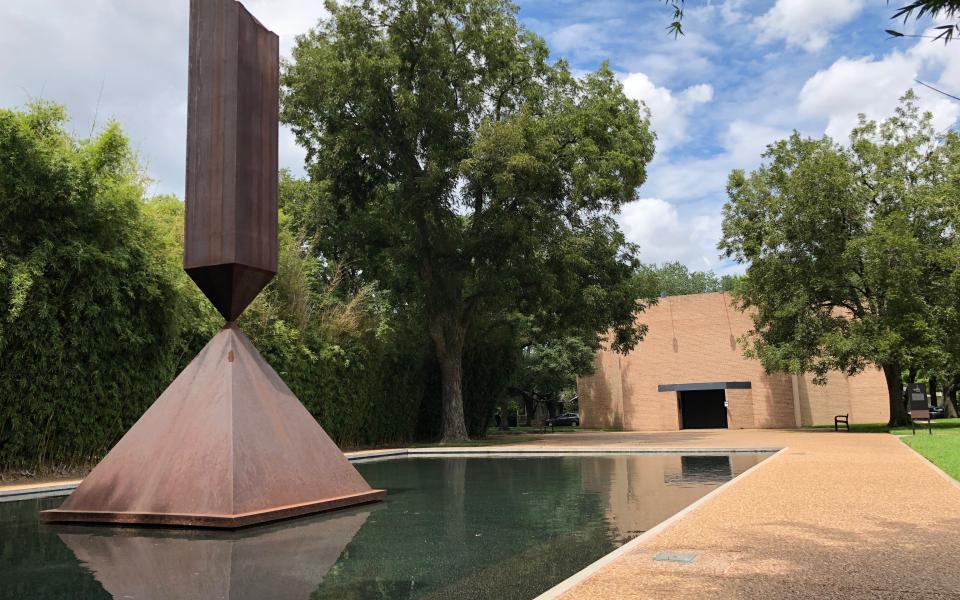
The Broken Obelisk by Barnett Newman at Rothko Chapel in Houston, Texas, USA.
Back on the plane, reading through mentally and emotionally heavy material on the prevention of genocide, I wondered to myself: am I prepared? Do I really possess the capacity to understand the high-level ideas, structures, and mechanisms that make up such an important organization as the United Nations? Do I deserve to have a seat at this table, a voice in this discussion? What can my small world experience and knowledge contribute to a place like this?
On the first day at the UN, my fellow URI members and I attended the fifth annual Symposium on the Role of Religion and Faith-Based Organizations in International Affairs, this year focused on “Financing For Sustainable Development Towards an Economy of Life.” Aside from my amazement at being present in the UN itself, where so many conversations and decisions of global importance occur, I was in awe of the organizations and philosophies represented in this symposium. In that place with all of those important people and ideas, my own life and work suddenly felt very small and insulated in comparison.
While I was thoroughly impressed by the UN, presenters, and presentations, I was at the same time surprised and somewhat disappointed by the dialogue, or lack thereof, between them. There was unanimous recognition and dissatisfaction among the presenters on the current global climate in which we live. They gave testament to the fact that we live in a world where countless humans do not have access to food, water, basic health necessities, gender and racial equality, education, justice, and peace. They were right – it is an outrage that we live in a world of such expansive inequality. However, amidst all of the outrage, there was something I did not hear: solutions. I did not hear many concrete suggestions for next steps or actionable tasks proposed to help create equity and peace in our world.
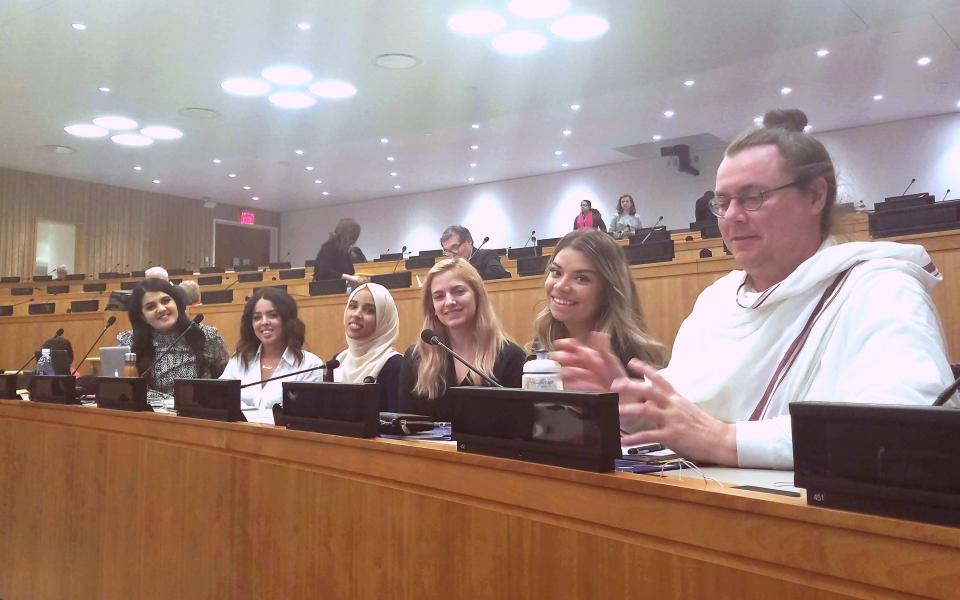
URI leaders at the fifth annual Symposium on the Role of Religion and Faith-Based Organizations in International Affairs at the United Nations.
As someone working on the grassroots level, this left me feeling somewhat helpless. If the powerful individuals and organizations represented at the UN see this magnitude of inequities and injustices yet do not know how to move forward, how am I meant to move forward within my work at the Rothko Chapel or within my own advocacy? Am I actually able to make a difference or evoke change? Or am I just too small?
Now I turn back to my initial questions on the plane: am I prepared? Do I belong here? What do I have to contribute? Does my small voice matter? These questions are difficult to ask and even harder face, and were continually recurring to me throughout my time at the UN.
Now, as I reflect on these questions and my experience in New York while back at my little office at the Rothko Chapel, I finally feel that I have an answer. I return to the Chapel office while it is bustling, busy with preparations for a concert of music inspired by sacred texts, meditative practices, and religious poetry in association with UN World Interfaith Harmony Week; a Zen Buddhist meditation on the concept of stewardship to our fellow humans and planet; a “Toxic Tour” exploring sites around Houston that pose environmental hazards to the population and earth; and last but certainly not least, a three-day symposium focused on the effects of climate change and local and national efforts to mitigate its effects. It is just as busy as it sounds!
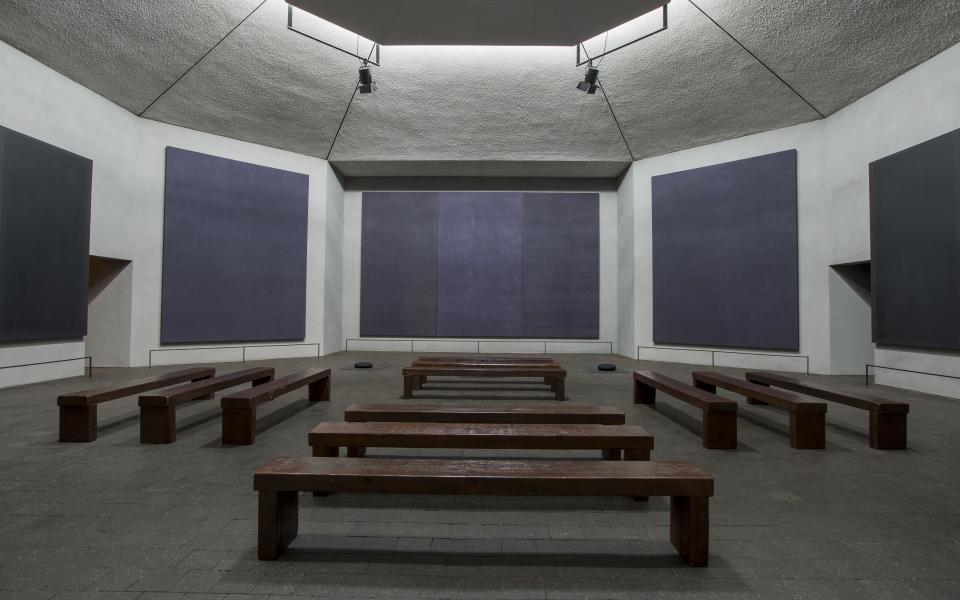
"In the midst of this at times chaotic bustle of activity, I feel a renewed sense of confidence and validation in the work that we do at the Chapel. Looking forward to all of the amazing programs and opportunities we have planned, I know in my heart that we provide a unique and truly significant space and create lasting impact on those who experience it."
In the midst of this at times chaotic bustle of activity, I feel a renewed sense of confidence and validation in the work that we do at the Chapel. Looking forward to all of the amazing programs and opportunities we have planned, I know in my heart that we provide a unique and truly significant space and create lasting impact on those who experience it. The Rothko Chapel may be little, but the type of work we do reaches our fellow humans in the deepest, most lasting ways. It brings people, who may never have spoken to each other otherwise into a shared space. It creates a safe space for conversation across cultural, religious, racial, and economic boundaries that separate us physically and mentally. It encourages difficult conversations, welcoming perspectives that vary widely but that all add to our vibrant world. It ignites the impetus in each person to use their voice and energy to act, to call their local representative, to attend a rally, to meet someone new, to seek spiritual and emotional healing, to make real, lasting change in their communities and world. And in the end, that’s what matters: connecting people to each other and their shared humanity.
I believe a lot of people working in grassroots organizations who work diligently for what seems like little-to-no recognition or progress probably ask themselves the same questions that came to me on the plane to New York. After facing these questions myself, seeing policy-making and global peace-making efforts on a large scale, and returning to my “small” world, I see my work anew. The small places and grassroots organizations are where movements begin, where we are able to make the biggest impact and take steps towards a peaceful world. Every little voice matters. We are all connected. Every small step towards mutual understanding and respect is a step closer to global equality and peace.

